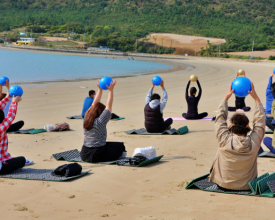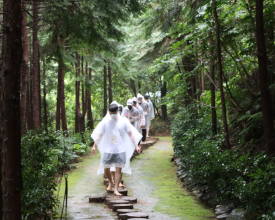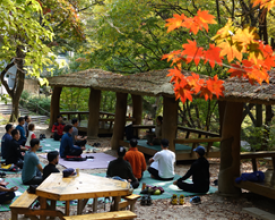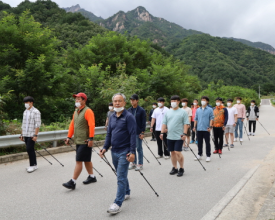
“Another important reason that Koreans protect their national parks” Healing in National Parks
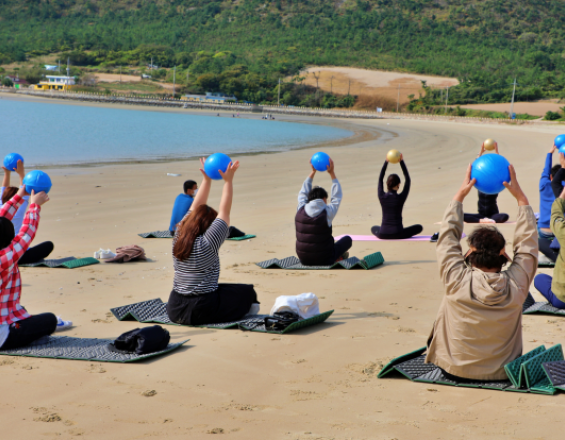
Utilizing the diverse elements of nature in the national parks, KNPS has run programs for 8000 adults in its ecological parks to improve their mental and physical health.
The program was developed with the participation of experts such as university professors and field psychologists. Currently, 40 programs have been running in 8 ecological parks.
Trekking islands by riding a yacht, mountain trekking, Nordic walking, yoga in the forest, brunch in nature, nature meditation, and handicraft experiences are examples of some of the programs offered as part of the mountain- or ocean-based healing programs which take advantage of the national parks’ characteristics. Converged programs connecting with temple stays and other aspects of the national park are offered as well.
A total of 72 employees who majored in environmental education, landscape architecture, forest resources and education, as well as guides who have qualifications in eco interpreting or forest healing are operating the program.
Contexto
Défis à relever
Ubicación
Impacts
At Chungnam National University, a national university of Korea, the Korea National Park Research Institute scientifically evaluated the psychological and physiological impacts that the 2022 National Park Healing Program had on the firefighters who participated in the program.
○ For the psychological impact evaluation, the Korea Positive and Negative Affect Schedule: The PANAS Scales, the Korean Warwick-Edinburgh mental well-being scale (WEMWBS) and the Perceived Restorativeness Scale (PRS) were used to measure psychological changes before and after participation in the program.
○ For the physiological impacts, changes in the autonomic nervous system action before and after participation in the program was measured by utilizing blood and pressure and heart rate variability(HRV).
○ The program was shown to increase positive emotions and perceived restorative environments and reduce systolic blood pressure and pulse pressure.

